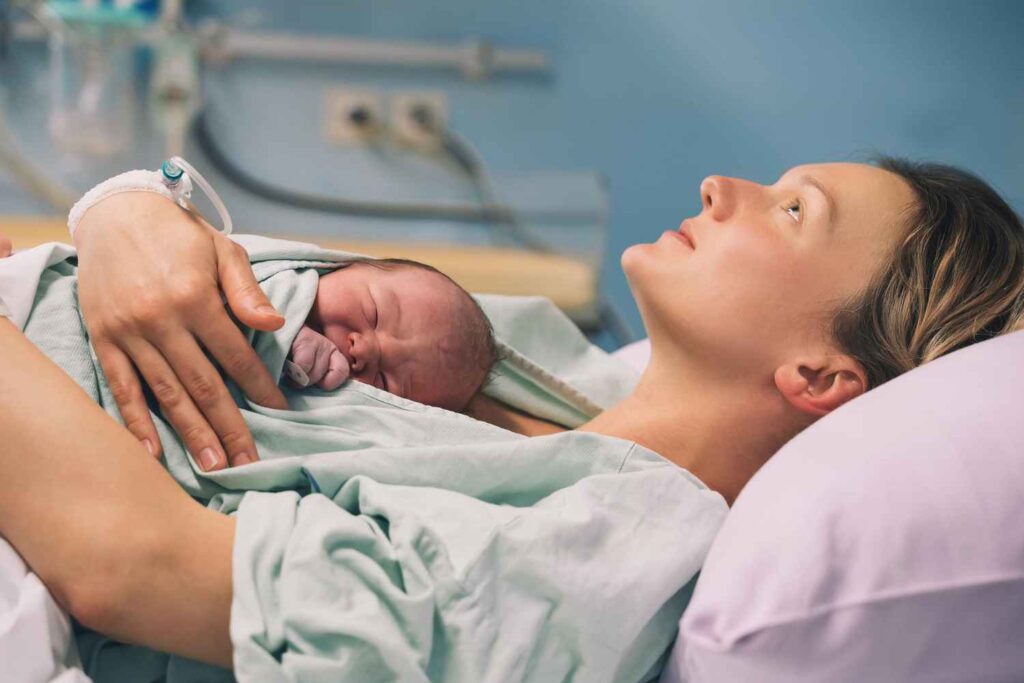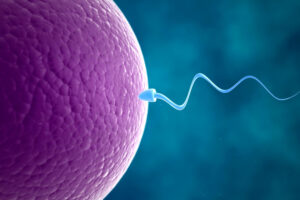Pregnancy is a time filled with hope, excitement and dreams for the future. However, for some parents, this journey can take a heartbreaking turn due to a stillbirth.
Stillbirth in pregnancy refers to the loss of a baby after 20 weeks of gestation but before birth. Unlike a miscarriage, which happens earlier, stillbirth occurs in the later stages of pregnancy and is an emotionally devastating experience.
While it’s not always possible to prevent every case, understanding stillbirth causes, identifying pregnancy risks and seeking timely fertility care can help reduce the chances. In this article, we will explore what causes stillbirth, the risk factors involved, and the medical and lifestyle steps that can contribute to stillbirth prevention.
What is Stillbirth in Pregnancy?
A stillbirth happens when a baby dies in the womb after 20 weeks of pregnancy. If the loss occurs before 20 weeks, it is classified as a miscarriage.
Stillbirth is categorized into three types based on the timing of loss:
- Early stillbirth – Between 20 and 27 weeks of pregnancy
- Late stillbirth – Between 28 and 36 weeks
- Term stillbirth – At 37 weeks or later
The World Health Organisation estimates that about 2 million stillbirths occur worldwide each year, with many cases being preventable through better prenatal care and timely medical interventions.
Common Stillbirth Causes
While some cases have no clear explanation, medical studies have identified several possible causes of stillbirth in pregnancy.
1. Placental Problems
The placenta is the baby’s lifeline, supplying oxygen and nutrients. If it develops abnormally or stops functioning properly, the baby’s growth and survival can be affected. Common placental issues include:
- Placental abruption (placenta separates from the uterus before delivery)
- Placental insufficiency (reduced oxygen and nutrient supply)
2. Birth Defects or Genetic Disorders
Structural or chromosomal abnormalities can lead to stillbirth. These conditions often develop early in pregnancy and may be detected through genetic screening.
3. Infections
Maternal infections such as toxoplasmosis, listeria, syphilis, rubella and severe urinary tract infections can harm the baby, especially if left untreated.
4. Umbilical Cord Complications
The umbilical cord can become knotted, twisted or compressed, cutting off the baby’s oxygen supply. Cord accidents may occur suddenly and are sometimes unpredictable.
5. Maternal Health Conditions
Certain chronic illnesses increase the risk of stillbirth in pregnancy, such as:
- Diabetes (uncontrolled blood sugar)
- High blood pressure or preeclampsia
- Kidney disease
- Thyroid disorders
6. Lifestyle Factors
Unhealthy habits can directly affect fetal development:
- Smoking or alcohol consumption
- Drug abuse
- Poor diet and lack of prenatal vitamins

Pregnancy Risks That Increase the Chance of Stillbirth
Some women face a higher likelihood of stillbirth due to underlying conditions or circumstances.
1. Maternal Age
Women over 35 have a slightly higher risk, especially for late stillbirth.
2. Multiple Pregnancies
Twins, triplets, or higher-order multiples are at an increased risk due to growth restrictions and a higher likelihood of preterm birth.
3. Previous Pregnancy Loss
A history of stillbirth or miscarriage raises the chance of recurrence.
4. Limited Prenatal Care
Skipping regular prenatal check-ups can delay the detection of fetal distress or maternal complications.
5. Obesity
High maternal BMI is associated with gestational diabetes, hypertension and stillbirth risk.
Signs and Symptoms to Watch For
Stillbirth can sometimes occur without warning, but specific symptoms may indicate a problem:
- Reduced or no fetal movement
- Vaginal bleeding
- Severe abdominal pain or cramping
- Leaking amniotic fluid
- Sudden swelling of hands, feet, or face (possible sign of preeclampsia)
If you notice these symptoms, seek medical attention immediately. Early intervention can sometimes save the baby’s life.
How Fertility Care Can Help Prevent Stillbirth
Modern fertility and obstetric care have advanced significantly, offering various ways to reduce stillbirth risk.
1. Preconception Counselling
Before trying to conceive, couples can benefit from fertility consultations to:
- Assess genetic risks
- Manage chronic illnesses
- Improve lifestyle habits
2. Genetic Testing
For couples with a family history of genetic disorders, pre-pregnancy or early-pregnancy genetic screening can help identify potential issues.
3. Close Monitoring During Pregnancy
Women with high-risk pregnancies require:
- More frequent ultrasounds
- Non-stress tests to monitor fetal heartbeat
- Doppler scans to check blood flow in the placenta and umbilical cord
4. Managing Maternal Health Conditions
Fertility and obstetric specialists can create tailored care plans for women with conditions like diabetes, thyroid issues or high blood pressure.
5. Nutritional Guidance
A diet rich in iron, folic acid, protein and omega-3 fatty acids supports healthy fetal growth and placental function.
6. Emergency Interventions
If the baby shows signs of distress, early delivery through induction or C-section may be recommended to prevent stillbirth.

Stillbirth Prevention: Practical Steps
Here are evidence-based lifestyle and medical strategies to lower the risk of stillbirth in pregnancy:
During Preconception and Early Pregnancy
- Get a complete medical check-up
- Treat infections promptly
- Avoid smoking, alcohol, and drugs
- Maintain a healthy weight.
During Pregnancy
- Attend all prenatal appointments
- Monitor fetal movements daily after 28 weeks
- Sleep on your side (especially in the third trimester)
- Manage stress through gentle exercise, meditation, or counselling
If at High Risk
- Ask your doctor about more frequent monitoring
- Consider low-dose aspirin if recommended for preeclampsia prevention
- Discuss early induction if past 39 weeks and at high risk
Emotional Support After Stillbirth
The loss of a baby is a harrowing experience. Grief counselling, support groups and therapy can help parents process their emotions. Fertility care specialists can also guide couples through future pregnancy planning with extra monitoring.
Conclusion
Stillbirth in pregnancy is a heartbreaking event, but understanding stillbirth causes, recognizing pregnancy risks and working closely with healthcare providers can make a difference. With the proper medical care, healthy lifestyle choices, and emotional support, many stillbirths can be prevented.
Fertility care plays a key role—not only in helping couples conceive but also in stillbirth prevention by ensuring a safe and healthy pregnancy journey.
Every pregnancy is unique, and proactive care can help turn hope into a healthy, happy reality.
At The Boon IVF, we understand how emotionally challenging stillbirth in pregnancy can be. Our team of experienced fertility specialists in Hyderabad provides advanced prenatal monitoring, personalized treatment plans, and compassionate support to help reduce pregnancy risks and ensure the healthiest possible outcome. From preconception counseling to high-risk pregnancy care, we are committed to walking with you every step of the way toward a safe and joyful birth.


